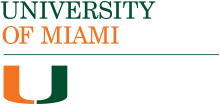The University of Miami, established in 1925, is a private research university located in Coral Gables, Florida. Over nearly a century, it has grown to become a significant educational and cultural institution in the region, boasting a diverse student body of over 17,000 undergraduate and graduate students. The university is spread across 239 acres, featuring state-of-the-art facilities and a vibrant campus life. With a strong emphasis on research, the University of Miami is classified among "R1: Doctoral Universities – Very high research activity," reflecting its commitment to advancing knowledge and innovation.
What sets the University of Miami apart is its unique location and cultural diversity. Nestled in a tropical, coastal city, the university offers a dynamic environment that blends academic rigor with a vibrant social scene. The proximity to Latin America and the Caribbean influences its multicultural atmosphere, providing students with rich opportunities for global engagement. The university's Rosenstiel School of Marine and Atmospheric Science is renowned for its cutting-edge research on climate change and oceanography, benefiting from its location near the Atlantic Ocean. Additionally, the Frost School of Music and the School of Communication are highly regarded, offering students a blend of theoretical and practical experiences enhanced by the vibrant local arts and media scene.
Academically, the University of Miami is well-respected, consistently ranking among the top 50 national universities in the United States. It offers over 180 majors and programs, with the Miller School of Medicine and the School of Law being particularly noteworthy. The Miller School of Medicine is known for its research in fields such as neuroscience and ophthalmology, while the School of Law is recognized for its programs in international law and environmental law. The university also emphasizes interdisciplinary study, allowing students to tailor their academic experiences to their interests and career goals.
However, the University of Miami is not without its challenges. The cost of attendance is relatively high, with tuition and fees often exceeding $55,000 per year, which can be a significant barrier for many prospective students. Additionally, while the university has made strides in increasing financial aid, some students still find it difficult to manage the financial burden. Moreover, the university's rapid growth has occasionally strained its resources, leading to concerns about class sizes and accessibility to faculty. Despite these challenges, the University of Miami continues to strive for excellence and remains a prominent choice for students seeking a dynamic, research-driven educational experience.



